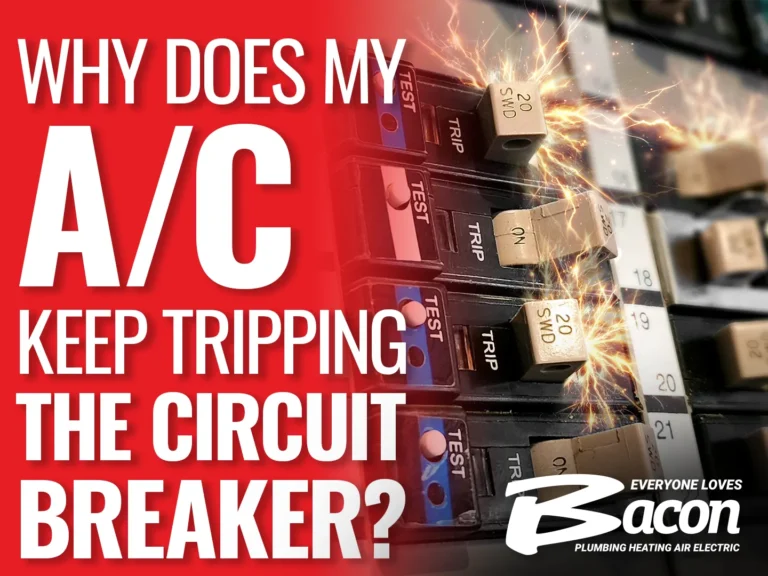It’s a simple fact that smoke detectors save lives. Statistics show that your chances of surviving a house fire are more than 50% higher if your home has smoke detectors. The National Fire Code requires that every home have a smoke detector in each bedroom or sleeping area as well as one detector in the hallway outside each bedroom area. Homes are required to have at least one additional detector on every floor.
The Importance of Testing Your Smoke Detectors Monthly
It’s essential that you test every smoke detector in your home monthly to make sure they all still work. This is something that most people forget or simply neglect to do. Experts recommend setting up an alert on your phone so that you get a monthly notification reminding you to test your smoke detectors.
All smoke detectors have a test button. When you hold the button in for a second or two, the detector should make a loud beeping noise. This beep tells you that the smoke detector is still working. If any of your smoke detectors don’t beep, you should throw them away and replace them immediately. If the unit is battery powered, you can try to replace the batteries and then test it again. However, there is little chance that the reason the unit didn’t work was because its batteries are dead. A smoke detector will constantly chirp when the batteries start running low, and this is something that you almost certainly would’ve noticed before the batteries completely died.
Signs Your Smoke Detector Needs to Be Replaced
Although smoke detectors can sometimes keep working for longer than 10 years, you’re still supposed to replace them 10 years from the date they were installed. All smoke detectors should have a label that shows the date they were manufactured. The label also has a space where you’re supposed to write the date the unit was installed so that you know when it’s time to replace it. If you can’t find this label, it typically means the detector is quite old and that you should replace it. Smoke detectors can also fail sooner than 10 years, so you should also replace the unit if you notice any of these signs.
Constant Chirping
A smoke detector that constantly chirps is not something you should ignore. This constant chirping indicates that either the batteries are dying or that the detector is starting to fail. The problem with ignoring this sound is that you could easily get desensitized to it and then not notice when the detector fails and the sound stops.
Some battery-powered units use either one 9-volt battery or two to three AA batteries. If you have a unit that uses replaceable batteries and starts chirping, you should always replace the batteries immediately and then test the unit. If it beeps when you test it, you don’t need to replace it yet as long as it isn’t older than 10 years.
More and more manufacturers are using lithium-ion batteries in their smoke detectors. The advantage of lithium-ion batteries is that they last far longer than traditional batteries and never need to be replaced. This makes lithium-ion units much safer since you never need to worry about forgetting to replace the batteries when they die like you do with traditional batteries. However, the lithium-ion battery in a smoke detector can’t be replaced, which means you need to replace the entire unit as soon as it starts chirping. Hardwired smoke detectors will also start chirping every few seconds when they begin failing to let you know they need to be replaced.
Detector Keeps Going Off for No Reason
Smoke detectors have to be extremely sensitive so that they can instantly detect even a hint of smoke and alert you that there is a fire. The problem is that some units start having sensitivity issues over time as their electrical components start to degrade. This can lead them to be triggered by dust or even high humidity and frequently start producing false alarms. When a smoke detector goes off, you can shut off the alarm by pressing the reset button. The issue here is that many people end up just taking the batteries out after being woken up one too many times by the smoke detector going off for no reason. This obviously defeats the purpose of having the detector in the first place, which is why you should just replace a unit if it starts giving false alarms.
Detector Is Turning Yellow
New smoke detectors are always white, but many will start to slowly turn yellow over time. Some people think that this yellowing is simply due to prolonged exposure to dust and airborne pollution. However, the truth is that smoke detectors start yellowing because most of them contain bromine. Bromine is a flame retardant that ensures that a smoke detector can withstand fire and continue working and alerting you to the presence of smoke. Long-term exposure to light, heat and oxygen will cause the bromine to make the smoke detector slowly turn yellow. This process typically takes quite a long time, which is why this yellowing is a sign that your smoke detector is old and needs to be replaced.
Hardwired vs. Battery-Powered Smoke Detectors
Although most people still use battery-powered smoke detectors, the local fire code in many places now requires new homes to instead have hardwired units. While you’re not required to replace battery-powered detectors in an existing home, you will usually have to install at least one hardwired unit when renovating or putting an addition on your home.
Even if you’re not planning any upgrades, switching to hardwired smoke detectors is well worth it and will make your home safer. Statistics show that hardwired units are more likely to continue working during a fire compared to battery-powered units.
Hardwired units are obviously connected to the electrical system, but they also have a battery backup to ensure they still work if the power is out. This gives you a second fail-safe or redundancy that greatly lessens the risk of the unit suddenly failing and not working without you knowing it.
When installing hardwired smoke detectors, every single unit in the home is wired together and interconnected. If one unit detects smoke and goes off, all of the other units will also immediately start going off. This means that you’ll immediately be aware if a fire starts in any part of the home.
If a fire starts on a different floor or different part of the home from where you’re at, you may not immediately hear a battery-powered unit going off. It can then take some time before the smoke travels far enough to set off other alarms. This lag time can allow the fire to spread much further before you’re aware of it. With hardwired units, every unit will start going off at once as soon as a fire starts.
If you want to upgrade your home with hardwired smoke detectors, Bacon Plumbing Heating Air Electric is ready to help. We specialize in electrical installation and repair services, and we also offer expert plumbing, HVAC and indoor air quality services for customers through the Dallas-Ft. Worth area.
For more information on the benefits of hardwired smoke detectors or to schedule an appointment for any home service, contact us today.



